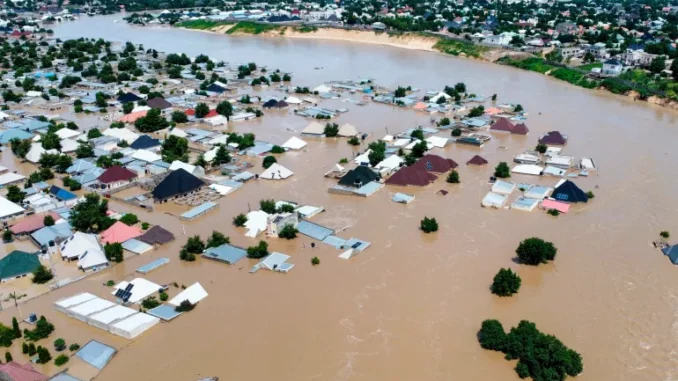
Northeastern Nigeria’s Borno state is grappling with severe flooding that has affected up to one million people. The disaster, triggered by heavy rains causing a dam to overflow, is the worst flooding in the state in two decades.
The floods have decimated a state-owned zoo, washing crocodiles and snakes into flooded communities. Borno state governor Babagana Zulum reported that a quarter of the state capital, Maiduguri, is submerged. The flooding poses significant health risks, with concerns about waterborne diseases due to overwhelmed sewage systems.
The Bakassi camp, which previously housed thousands displaced by the Boko Haram insurgency, has been particularly hard hit. This disaster adds to Nigeria’s ongoing struggle with floods. Since the start of the year, 229 people have died due to flooding across the country.
Authorities are scrambling to rescue residents and provide temporary shelters, but the full extent of the damage remains unclear. The situation in Borno is especially concerning given the state’s history of conflict and displacement.
The flooding underscores the urgent need for improved infrastructure and disaster preparedness in the region. As climate change increases the likelihood of extreme weather events, Nigeria faces the challenge of protecting its most vulnerable communities from future disasters.
